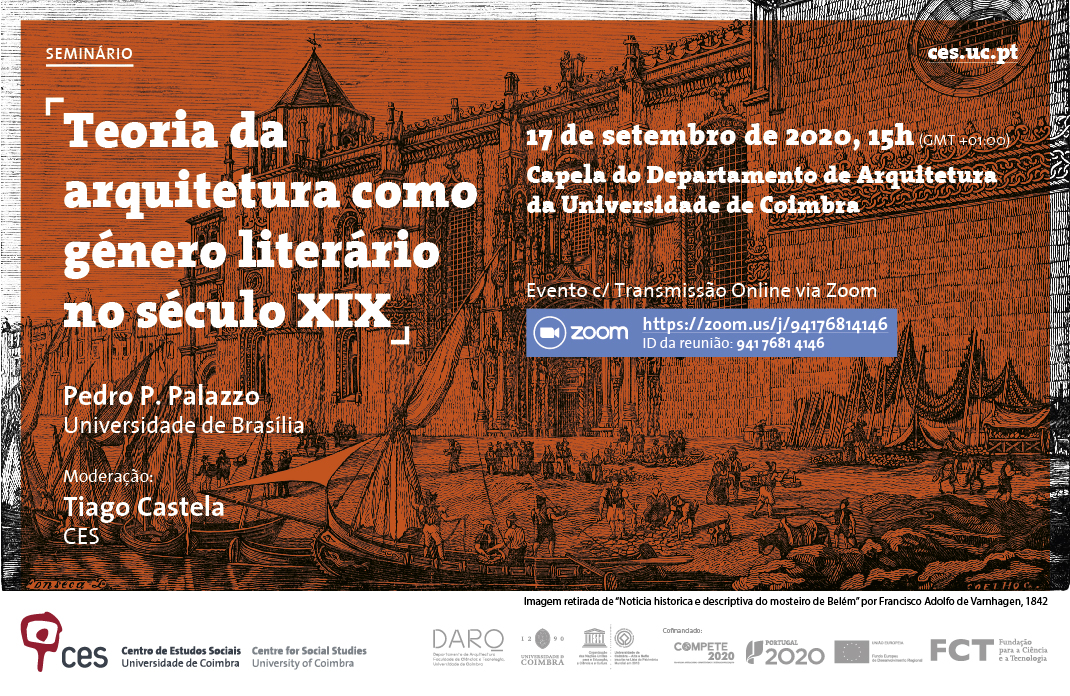Seminar
Architecture theory as a literary genre in the 19th century
Pedro P. Palazzo (Universidade de Brasília)
September 17, 2020, 15h00 (GMT +01:00)
Room T2, Department of Architecture - UC, [Event with Streaming]
Moderator: Tiago Castela (CES)
Overview
The critique of the architectural character in Portuguese language, from the mid-19th to early 20th century, draws its motivation and methodology from literary history, and takes place largely in the discursive circles of this discipline. The expression of nationalist Romanticism in literary theory and ethnography, as well as its documentary developments at the end of the 18th century, provide architectural thought with methodological models and often already articulated interpretative frameworks. We depict the links between the disciplines of literary history and architecture in the process of formulation and crisis of the "anthropological construction of the nation" in Portugal and Brazil from the 19th century until the rise of disciplinary architectural discourse in the early 20th century. From these connections results an imaginary landscape of national architectures, which gradually moves from scholar to popular and from urban to rural.
Bio note
Pedro P. Palazzo is an assistant professor at the Faculty of Architecture and Urbanism of the University of Brasília and a visiting researcher at the Centre for Social Studies of the University of Coimbra (2019-2020). He is an architect, PhD in aesthetics and semiotics of architecture. Palazzo researches the history of traditional construction and the historiography of architecture, focusing on the 19th century and the contacts between classicism and modernity. Edited the book Tempos e scalas da cidade e do urbanismo (University of Brasília Press, 2014) and is the author of "Tipologia da edificação na arquitectura vernácula da Beirã", in Um projecto de futuro para a Beirã (Marvão) (Lisbon: Serra Henriques Foundation, 2018). He is co-author of "The Missing 'Brazilianness' of Nineteenth-century Brazilian Art and Architecture", in Whose tradition? (London: Routledge, 2017) and the entry about the Carioca architect and builder Heitor de Mello in the Grove Dictionary of Art (2019).
NOTE: This is a hybrid event. In addition to the live presentation to a limited audience (having regard to the health rules in force at the time), there is also the possibility of participating through the Zoom platform, without compulsory registration.


